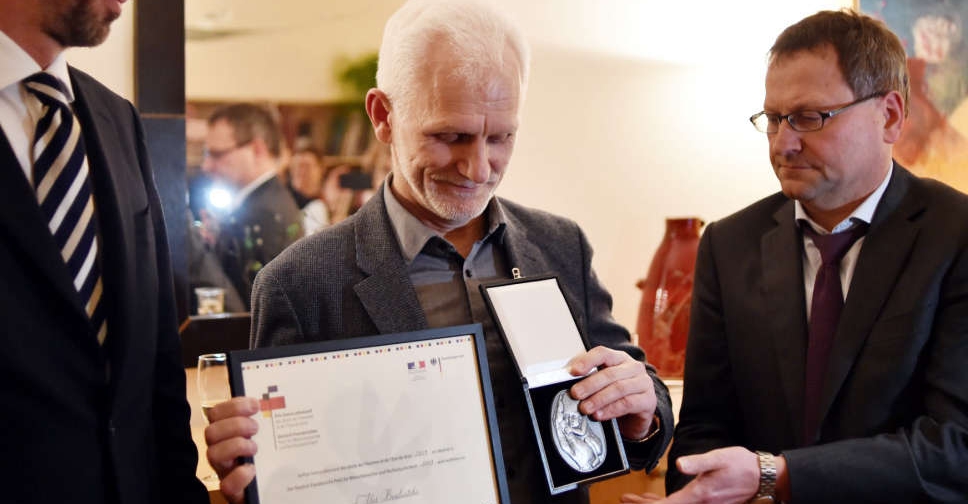
Jailed Belarusian human rights activist Ales Byalyatski, and organisations in Russia (Memorial) and Ukraine (Center for Civil Liberties) have been awarded the 2022 Nobel Peace Prize.
"The Norwegian Nobel Committee wishes to honour three outstanding champions of human rights, democracy and peaceful co-existence in the neighbour countries Belarus, Russia and Ukraine," said Committee Chair Berit Reiss-Andersen.
She called on Belarus to release Byalyatski from prison.
The prize will be seen by many as a condemnation of Russian President Vladimir Putin, who is celebrating his 70th birthday on Friday, and Belarus President Alexander Lukashenko, making it one of the most politically contentious in decades.
The award was not an anti-Putin prize, however, Reiss-Andersen said.
"We always give the prize for something and to something and not against someone," she told reporters.
Belarusian security police in July last year raided offices and homes of lawyers and human rights activists, detaining Byalyatski and others in a new crackdown on opponents of Lukashenko.
Authorities had moved to shut down non-state media outlets and human rights groups after mass protests the previous August against a presidential election the opposition said was rigged.
The Nobel Peace Prize, worth 10 million Swedish crowns, or about $900,000, will be presented in Oslo on December 10, the anniversary of the death of Swedish industrialist Alfred Nobel, who founded the awards in his 1895 will.
"The Peace Prize laureates represent civil society in their home countries. They have for many years promoted the right to criticise power and protect the fundamental rights of citizens," the Norwegian Nobel Committee said in its citation.
"They have made an outstanding effort to document war crimes, human rights abuses and the abuse of power. Together they demonstrate the significance of civil society for peace and democracy."

 UK inquiry finds 'chilling' cover-up of infected blood scandal
UK inquiry finds 'chilling' cover-up of infected blood scandal
 Iranian President Raisi killed in helicopter accident, state media says
Iranian President Raisi killed in helicopter accident, state media says
 ICC prosecutor seeks arrest warrants for Israeli, Hamas leaders
ICC prosecutor seeks arrest warrants for Israeli, Hamas leaders
 Assange given permission to appeal against US extradition
Assange given permission to appeal against US extradition
 Israel intends to broaden Rafah sweep, Defence Minister tells US
Israel intends to broaden Rafah sweep, Defence Minister tells US




